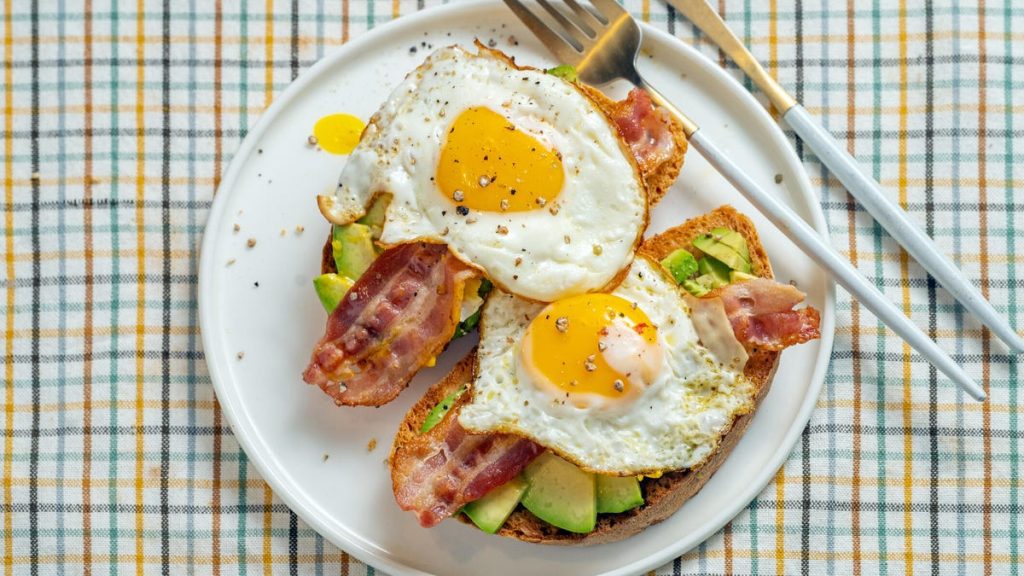Protein is essential for the body, as it helps regulate hormones, transport molecules, and act as an enzyme for chemical reactions. The recommended daily intake of protein for the average person is around 100 grams, although this amount can vary depending on individual factors such as activity level. To ensure that you are getting enough protein in your diet, a visual guide has been created to show what 100 grams of protein looks like for individuals following different dietary preferences.
For omnivores, achieving 100 grams of protein per day is relatively simple. A sample meal plan may include two eggs, snack cheese, Greek yogurt, beef sausage, tuna, rolled oats, deli ham, mixed nuts, and rye bread. This combination adds up to slightly over 100 grams of protein, making it easy for omnivores to meet their daily protein requirements.
For individuals who consume animal products, reaching the 100-gram protein goal is also straightforward. A diet rich in animal protein can consist of eggs, tuna, beef meatballs, turkey bacon, and turkey breast. By incorporating these items into meals throughout the day, individuals can easily reach the recommended daily intake of protein.
Vegetarians can also meet their protein needs with a variety of plant-based sources. A vegetarian-friendly meal plan may include eggs, rolled oats, snack cheese, protein granola, Greek yogurt, hemp seeds, peanut butter, and plant-based protein powder. This combination provides close to 100 grams of protein, making it a suitable option for vegetarians looking to maintain a balanced diet.
For vegans, obtaining 100 grams of protein may require more careful planning. A vegan-friendly meal plan could include nuts, rolled oats, protein granola bar, rye bread, chia seeds, hemp seeds, peanut butter, and plant-based protein powder. While this combination totals 79 grams of protein, additional servings of nuts, seeds, or peanut butter can help vegans reach the target protein intake. Additionally, high-protein vegan meat substitutes like tofu, tempeh, and plant-based burgers can aid in achieving the desired protein amount.
In conclusion, protein is a crucial component of a healthy diet, and it is essential to ensure that you are consuming enough to support your body’s functions. By following the visual guide provided for different dietary preferences, individuals can make informed choices about their protein intake and work towards meeting their daily requirements. Whether you are an omnivore, vegetarian, or vegan, there are various ways to incorporate protein-rich foods into your meals and maintain a balanced diet.


